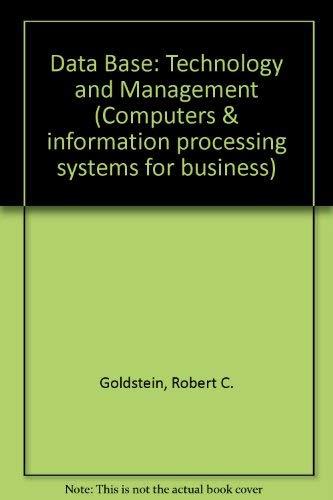Question
(True/False) A serial schedule of two transactions is conflict equivalent to every other serial schedule of two transactions. If two transaction schedules are conflict equivalent
(True/False) A serial schedule of two transactions is conflict equivalent to every other serial schedule of two transactions.
If two transaction schedules are conflict equivalent then they a) have the same final database state if they have the same initial state, b) have the same conflicts, c) are conflict serializable.
Which of the following pairs of operations are conflicting? a) read(B), read(B) b) write(A), read(B) c) write(A), read(A) d) write(A), write(B)
(True/False) If two transaction schedules are conflict equivalent, then one is a serial schedule.
(True/False) It is possible to achieve isolation by simply running one transaction at a time.
(True/False) If one transaction schedule can be reached from another transaction schedule through a sequence of swaps of non-conflicting operations, then the two schedules are conflict-equivalent.
(Yes/No) Suppose we have two schedules involving two transactions. Also, running the schedules always has the same effect (in other words, they will end at the same database state if they are run from the same database state). Are the two schedules necessarily conflict equivalent?
Step by Step Solution
There are 3 Steps involved in it
Step: 1

Get Instant Access to Expert-Tailored Solutions
See step-by-step solutions with expert insights and AI powered tools for academic success
Step: 2

Step: 3

Ace Your Homework with AI
Get the answers you need in no time with our AI-driven, step-by-step assistance
Get Started


